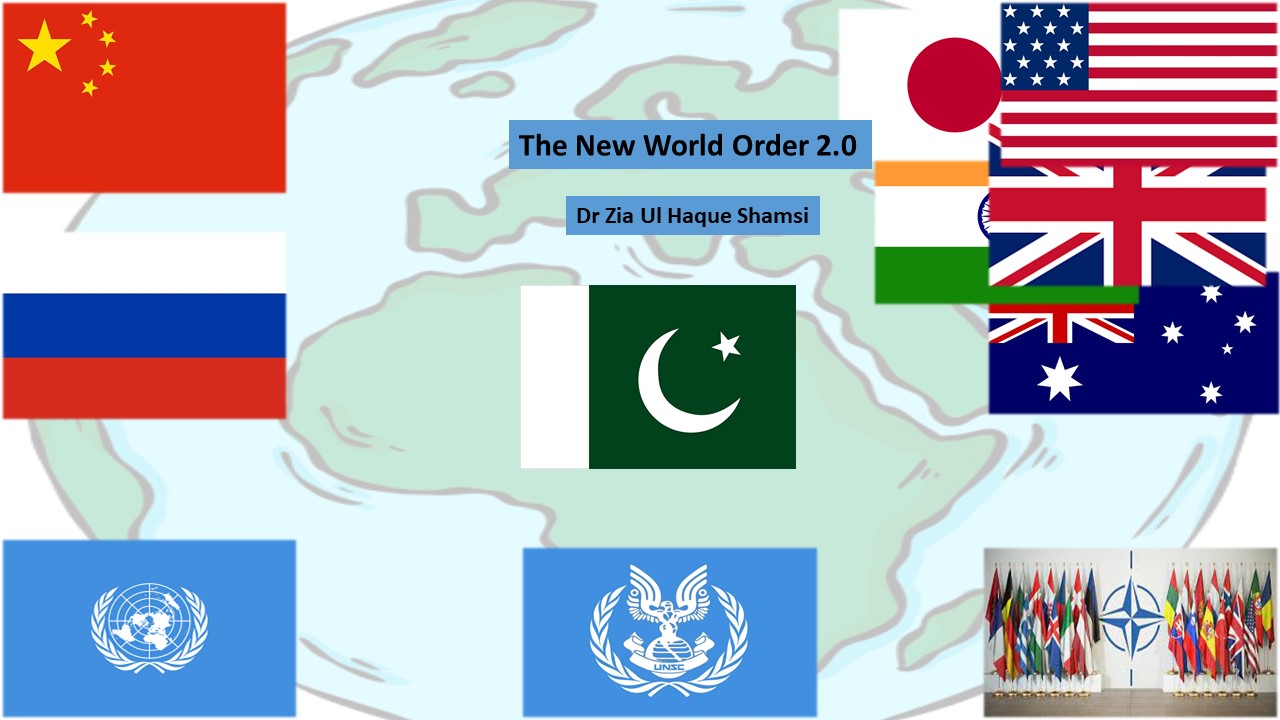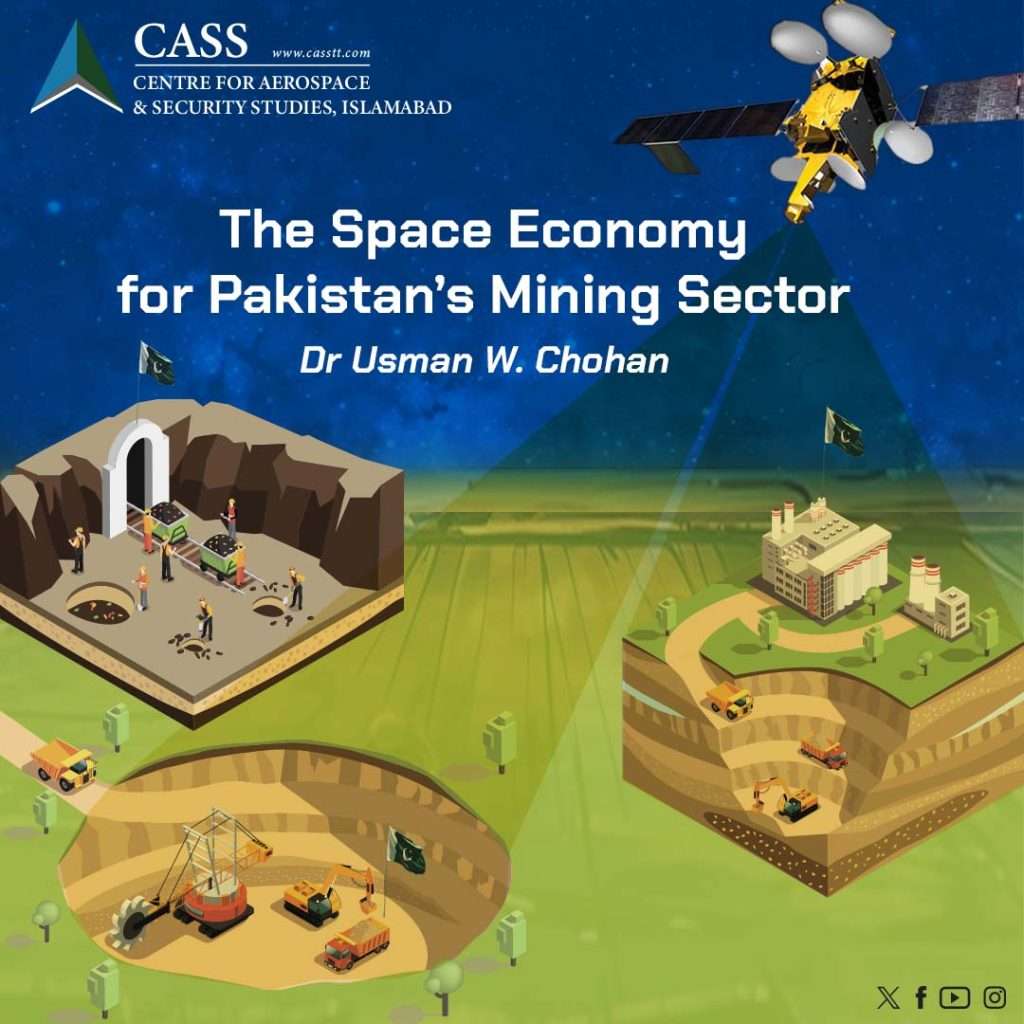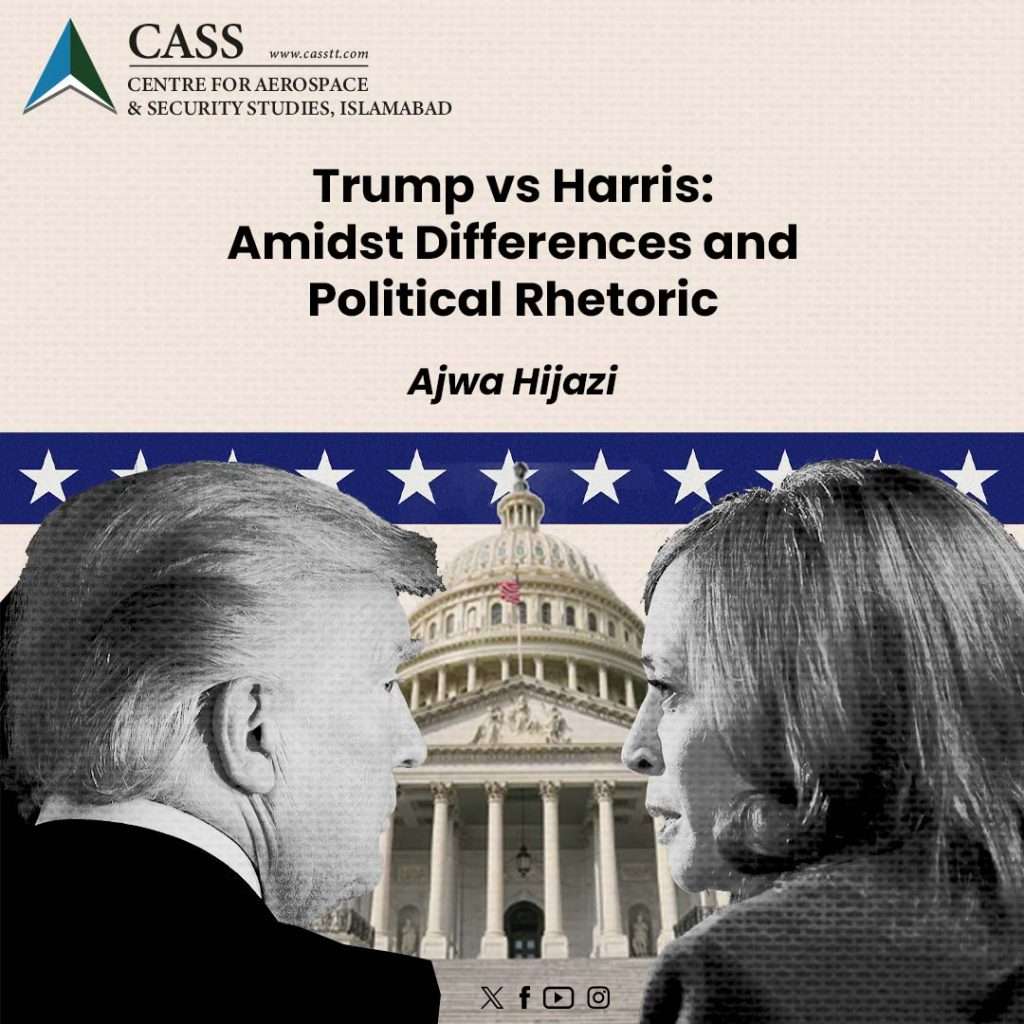While Pakistan has been engaged in an intense debate about “geostrategy” and “geo-economics,” geopolitics has taken over global affairs by storm. Geopolitical considerations, based on supreme national interests as dictated by classical realism with power and security as its cardinals, have started to virtualise the “New World Order 2.0.”
Since the hasty withdrawal of the United States and NATO forces from Afghanistan on August 15, 2021, the world order has been changing at a much faster rate than anticipated by academic experts and practitioners alike, who are unable to grapple with the evolving situation.
New strategic blocs like QUAD (US, UK, Japan and India) and AUKUS (Australia, UK, and the US), have already been formalised with a focus on the Indo-Pacific region, primarily targeting China. Bilaterally also, India has signed a number of Strategic Agreements with the US, such as the Basic Exchange of Cooperation Agreement (BECA). Under this agreement, India will have access to state-of-the-art technology related to communications, space, and aviation. The US is expected to provide India with real-time intelligence and geo-spatial guidance in any future conflict with China or Pakistan. Pakistan has shown its concerns that BECA would add to strategic instability in the region.
The US, following the Monroe Doctrine presented in Congress on December 2, 1823, has not allowed any political interference and offensive weapons in the western hemisphere, and vehemently protested to Soviet Union’s placements of Medium Range Ballistic Missiles (MRBMs) in 1962 on its doorsteps in Cuba. The events are famously referred to as the ‘Cuban Missile Crisis’ during which the world was minutes away from Armageddon. While the US ensured its security interests by forcing the USSR to withdraw its MRBMs from Cuba, it desires to place North Atlantic Treaty Organisation (NATO) forces on the doorsteps of Russia by including Ukraine in NATO.
At the beginning of the Cold War in 1949, NATO was founded with only 12 members with the purpose of collective security. However, it steadily expanded to include Greece and Turkey in 1952, followed by West Germany in 1955 and Spain in 1982. After the Cold War ended in 1990, and East and West Germany were united, NATO started to expand its wings eastwards, and embraced Poland, Hungary and Czech Republic in 1999. The next expansion came when Bulgaria, Estonia, Latvia, Lithuania, Romania, Slovakia, and Slovenia formally joined in 2004, whereas Albania and Croatia joined in 2009. Throughout this period, Russia kept on protesting against NATO’s eastward expansion, however, Western powers ignored Moscow’s concerns, assuming that the latter did not have the requisite power to stop them. The last two states that joined NATO were Montenegro in 2017, and North Macedonia in 2020. However, NATO’s efforts to embrace Ukraine in its fold was perhaps like crossing Russia’s red line, and therefore, the Kremlin decided to respond by moving its forces westward into Ukraine from different directions.
While Soviet leader Nikita S. Khrushchev tested the resolve of US President Kennedy during the Cold War by placing MRBMs at her doorstep on Cuban soil, President Biden also seemed to be testing President Putin by bringing NATO forces alongside Russia’s borders. The result is no different. President Kennedy imposed quarantine and blocked Soviet ships towards the Cuban coasts and forced Khrushchev to blink. Though the Soviet leader withdrew the missiles from Cuban soil but ensured that NATO also pulled back its Jupiter missiles from Turkey that were threatening the then-Soviet Union.
President Putin’s response is more aggressive, and he has acted more decisively. War is not a solution and does not resolve political issues. In fact, Western powers should have addressed the genuine security concerns of the Russian Federation.
The global response to the Ukraine crisis is divided. The Western world is supporting Kyiv militarily, diplomatically, and financially. However, China has blamed the US for the crisis. Likewise, India has abstained from voting against Russia at the United Nations Security Council (UNSC).
If the situation in Ukraine continues to escalate and becomes prolonged, and the Ukrainian population continues moving out to bordering countries in large numbers, then the cost of war for Ukraine may become unbearable for its pro-West leadership. Moreover, Russia has already placed its strategic forces on high alert raising alarm bells in Western capitals. While nearly all pro-Western countries have imposed different types of sanctions on Russia, President Putin is not showing any signs of respite in the military operations.
It is apparent that a ‘New World Order 2.0’ is taking shape in which Russia and China would lead the rest of the world against the West that led the post-Cold War World Order. This fast-evolving world order would be far more complex, uncertain, and more prone to wars and conflicts. Many states would want to stay neutral, but the changing geopolitical environment may not give them that choice and invariably drag them into a larger conflict scenario.
Dr Zia Ul Haque Shamsi is the author of ‘Nuclear Deterrence and Conflict Management Between India and Pakistan’ (2020) and ‘South Asia Needs Hybrid Peace’ (2021). He is presently working as Director at the Centre for Aerospace & Security Studies (CASS), Islamabad, Pakistan. The article was first published in Daily Times. He can be reached at cass.thinkers@gmail.com.
Image Source: Etfa Khurshid Mirza





